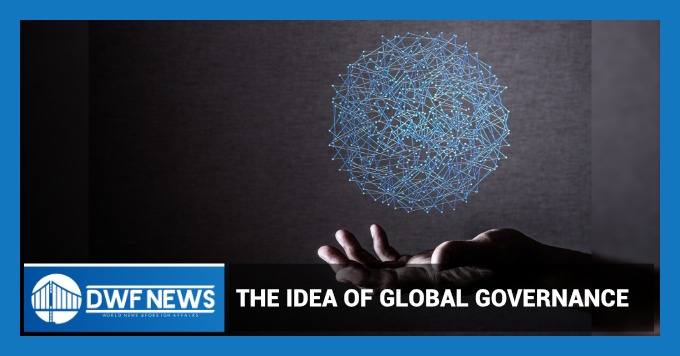“International solidarity is not an act of charity, it is an act of unity between allies fighting on different terrains towards the same objective. The foremost of these objectives is to aid the development of humanity to the highest level possible.” – Samora Machel
Written By Varsha Venkata Raman
Writer | Modern Diplomacy
May 13, 2020
Article originally published by Modern Diplomacy
“Global governance” has increasingly become common sense within the political-economic sphere in the context of preaching for accountability and transparency. There is, however, a grey space that claims questions of what the end goal of such coherence is called for and who it seeks to serve. This paper shall descriptively delve into the need for Global Governance in today’s world while enumerating its corresponding challenges and criticisms.
The international arena in the 21st century requires a catalyst to unify the world beyond borders and to build global institutions that can combat disparagement of the idea of globalisation. The resolution to this conundrum is the dilation and legitimisation of global governance. Global Governance is essentially a framework that proposes global relationship and a knit playing field integrating all spheres of a society including social, economic, political, cultural, and environmental sectors to revolve issues with a collective consciousness as liberalists would preach.
This is however unachievable without all actors in the system including, states, political figures and leaders, quasi state actors, corporate sector and institutions, NGO’s, MNC’s and the financial system collaborate to form a coherent structure that can vastly influence the grassroots of the system. This is parallel to the idea of mega diplomacy proposed by Parag Khana, a profound specialist in international relations. As Parag Khana stated, “We’re moving into a post Westphalian world, a world which is populated where the authoritative actors are not just governments. They are companies”. He explains how diplomacy has widened as a tool into diverse spheres such as private mercenary armies, AI and technology, humanitarian agencies and non-governmental organizations, the educational sector; schools and universities, religious institutions and organisations and much more. He believes that diplomacy stretches beyond multilateral institutions such as the United Nations and the World bank or bilateral relations between nation states themselves. This is more efficient as it uplifts the accountability held by state and non-state actors. It propagates a sense of global order and global citizenship in an interdependent world as an aftermath of proactively embracing globalisation . . .
What is World Federalism?
World Federal Government (WFG)
Original Publisher
Modern DiplomacyVarsha Venkata Raman
Related Articles
ARTICLES FOR THIS ISSUE: May 2, 2024
Dirty trick to help Israel continue genocide? US to Spend $350 Million Constructing Gaza Pier Dave DeCamp Antiwar.com Why They Hate Us: Decent Jews Against Occultist Khazarian Kid Killers Alan Wagman Common Dreams Student protests show conscience still counts...
ARTICLES FOR THIS ISSUE: DWF NEWS APRIL 18, 2024
Israel's sickening history of crimes against humanity Dead on Arrival: Israel's Blowback Genocide Ellen Cantarow Iran puts Israel on notice The Missiles of April Scott Ritter U.S. Government Bullies Weak Nations Eric Zuesse Does Project 2025 suggest a 'Taliban...
Articles for This Issue: DWF NEWS April 4, 2024
Israel's Meddling in US Politics Is Aggressive & Unceasing Branko Marcetic Germany's economy sucker punched by U.S. The Stupidity and Vileness of the U.S. Empire's Leaders Eric Zuesse The Rapture, Armageddon, & the Second Coming No topic in...
Solving Global Problems
We can work together to make the world better

